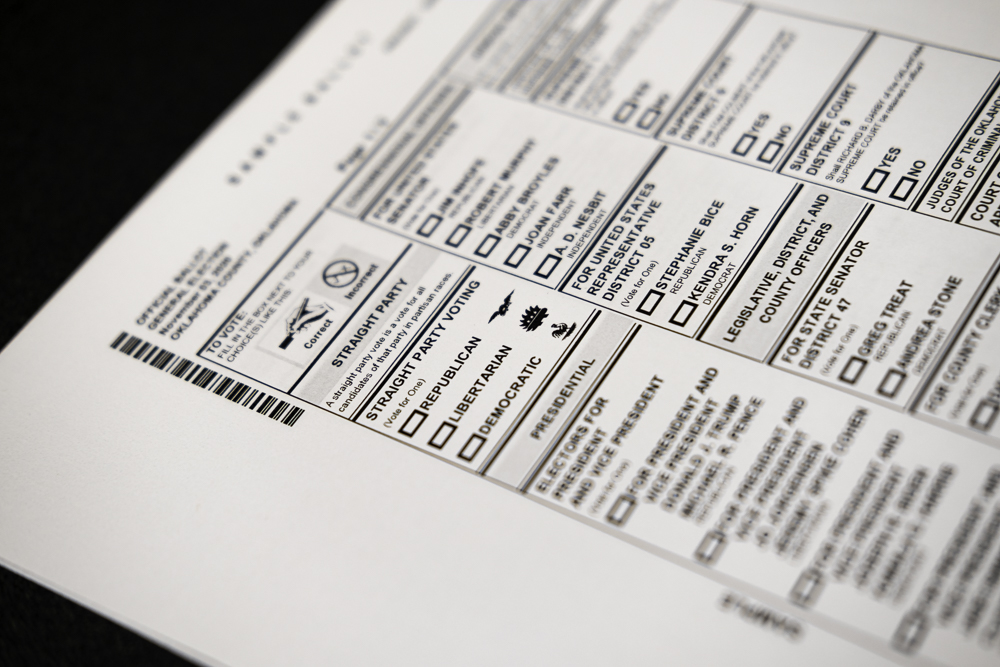
Students have prepared to make their voices heard in government.
The Student Civic Engagement Committee hosted a notary drive to allow students from different states to get their ballot notarized depending on the requirements of their home state. The states that require ballot notarization or a witness signature are Ala., Maine, Miss., Mo., Okla. and S.D. The drive ran through the three weeks before Election Day, from Oct. 12-30.
Reid Powell, political science junior, serves as the executive director of the SCEC. Powell said the notary initiative is new to campus.
“I’ve been having a lot of conversations with both faculty and staff about the importance of mail-in voting, especially in the middle of a pandemic and with a campus population that is nearly half out-of-state,” Powell said. “It is crucial that students are able to get their absentee ballots notarized.”
Powell said the SCEC paid for postage so students can have access to free stamps for absentee ballots. Powell said it is many students’ first time voting in a presidential election.
“It’s been really exciting to see students so passionate. When the committee hosted a voter registration drive a few weeks ago, a lot of students had already been registered to vote and had made plans on how they will be voting,” he said.
Powell said civic engagement is a necessary aspect of democracy.
“It’s especially important that young people start early with getting involved in voting,” Powell said. “I hear a lot that people feel like voting doesn’t matter, but if young people begin to vote, the government will start to notice and listen to young people.”
Dr. Richard Johnson, professor of political science, said the current political system favors the older generation due to voting participation.
“The system is balanced against young people because older people tend to vote, so the ideas that they support tend to be favored in elections,” Johnson said. “It’s more important than ever to make sure your vote is fair, and hopefully there’s a result from the election that gives us a clear sense of direction.”
Johnson said students have an important decision to make, and he has never seen such an unusual set of dynamics in an election.
“There’s such a stark choice difference between the president and former vice president,” Johnson said. “You need to express yourself. Whether you’re a friend of the president or the former vice president, there’s a lot of deep-seated issues.”
April Galindo-Liongco, accounting junior, is mailing in her ballot for election day. Galindo-Liongco said voting is a powerful way for students to take control of their futures and the future of the country.
“I hate when people complain about politics, but then they don’t vote. You have the right to complain, but you had the opportunity to make change,” Galindo-Liongco said. “For the longest time I felt like I didn’t know enough or that my opinion didn’t matter. If we don’t participate, then the people we are the loudest get their opinions heard.”
Galindo-Liongco said young people have power in numbers and have the potential to change the course of history.
“What I love about democracy is that it’s for the people. It’s about what’s going to work for people today and in the future,” she said. “Our country is at this turning point where the younger generation is really involved and has as strong of a voice as the older generation.”
Voters can check the status of their mail-in ballot or find information about voting at https://www.voteamerica.com.


Leave a Reply